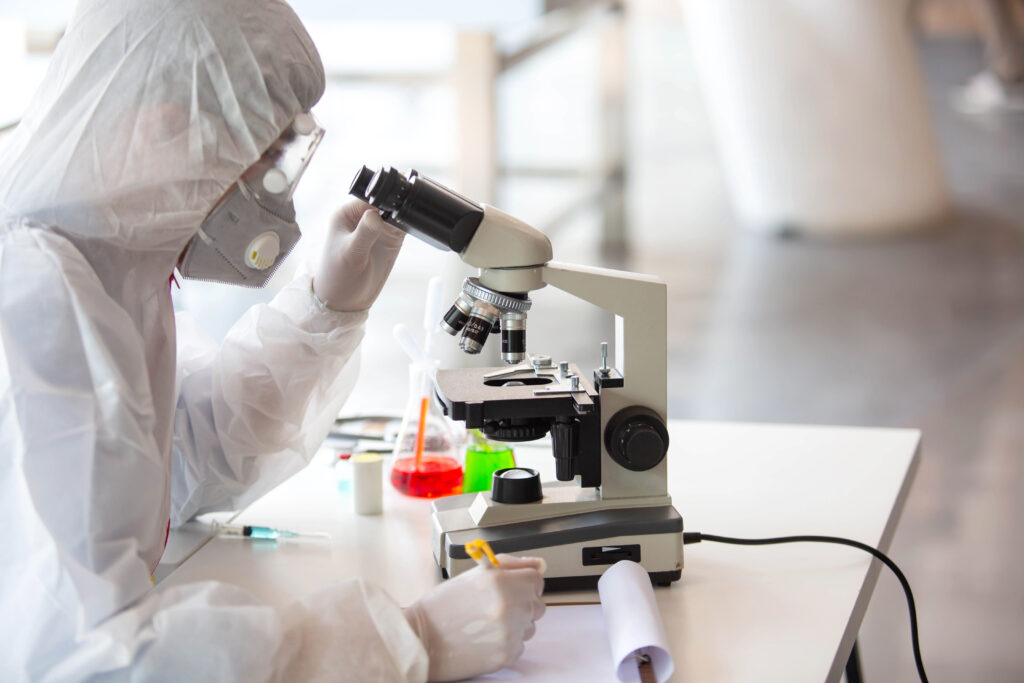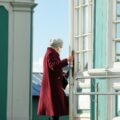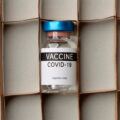Christianity and the COVID-19 vaccines
Christianity and the COVID-19 vaccines
In vaccination campaigns against COVID-19 across Europe, Christian faith leaders and institutions have been keen to demonstrate their support for the vaccines. What does their role in such campaigns show about the relevance of Christianity in Europe in 2021?
Ever since the coronavirus pandemic began its spread across Europe in March 2020, leaders and institutions within the Christian faith have accepted the need to change their practices in order to protect the well-being of their followers and the wider society. This adaptation has not always been easy, and tensions between religions and governments over rules on services, funerals, and celebrations have increased as second and third waves of the virus have emerged.
Christian leaders have made it clear that they both support the vaccines and would like to actively help to encourage society to have faith in them. Therefore, an observation of the Church’s role in supporting vaccines shows how they continue to have an important public role. In particular by inspiring confidence and cooperation between citizens and authorities.
Early ethical questions
For the Christian faith, the question of vaccination is of particular importance given the fact that in many Western European countries, many of the most committed followers of the faith are older and as a result more at risk from the virus.[1] Therefore, since the approval of the Pfizer and Oxford vaccines in late 2020, different confessions of the Christian faith have taken the lead in promoting the safety of the vaccine and assuring it is morally permitted.
The current support shown by different churches for the vaccine is of great importance given that during the earlier stages of research, some religious figures had raised doubts about the ethical permissibility of the development process. In one prominent example from June 2020, the Cardinal of Valencia, Spain, Antonio Canizares, expressed his concern that the vaccine was being made with “the cells of aborted fetuses” and that the research was a “work of the devil.”[2]
This concern originated in the fact that the research process for coronavirus vaccines utilised stem cells which, according to Canizares, conflicted with the ethics of Catholicism. A similar worry was shared by leading archbishops of both the Catholic and Anglican faiths in Australia.[3] This article on the EARS website provides greater detail about the ethical debate regarding this issue.
In order to challenge these ethical doubts about the vaccines, church leaders have since late 2020 expressed their clear support for the campaigns, and tried to assure followers that receiving one of the vaccines is both safe and morally permissible.
Approving the morality of the jab
The most influential and significant example of support for the vaccine has come directly from the Vatican. Both Pope Francis and his predecessor Benedict XVI received the vaccine in mid-January, with the current pontiff stating that it was a “moral duty” to be vaccinated.[4] [5] Furthermore, the Vatican has incorporated vaccination into its charity work, beginning a campaign to ensure that all homeless people living within the Holy See’s walls receive the jab.[6]
In line with this support, Catholic leaders across Europe have voiced their approval to followers within their nations. For example, in both Ireland and Croatia, Catholic bishops have made public statements to assure followers that the vaccines are both safe and ethically acceptable.[7] [8]
Helping to spread the word
In the Orthodox faith, churches have not only assured of the ethical validity of the vaccine, but have also actively joined campaigns to encourage people to get vaccinated and to fight against dangerous misinformation.
This is evident in Romania, where the Orthodox Church has worked alongside authorities to use its influential position in society as a means of distributing brochures containing information about the vaccine. This information includes the recommendation that followers check the government’s official website for further details about the vaccine.[9] Likewise, in Greece, the Orthodox Church has confirmed it will cooperate with the authorities to help support the vaccination campaign.[10]
Meanwhile, the Anglican church in the United Kingdom has gone a step further, by turning one of their most famous buildings, the Salisbury Cathedral, into a centre at which hundreds of people will be able to get vaccinated safely.[11] The use of cathedrals as vaccination centres has been written about more extensively on the EARS website in this article.
In addition, the Church of England leader, Archbishop Justin Welby, has himself received the jab and has explicitly criticised Canada for over-ordering vaccines, stating that ‘vaccinationalism’ is self-defeating and will delay a global recovery from the virus.[12]
A reliable voice in uncertain times
As this article has shown, different confessions of the Christian faith have been keen to demonstrate their support for the vaccine. This support is important for the following reasons.
First of all, the Christian institutions and leaders have aimed to demonstrate that despite some early suggestions of ethical problems with the vaccine, the vaccine does not, in their view, contradict religious beliefs. Secondly, with the significant amount of vaccine misinformation that has spread on social networks, the fact that historic institutions like the Church have called on followers to be vaccinated helps to add to public confidence that the process is safe.[13]
More widely, the actions of the Church demonstrate an important fact that is relevant to all people interested in religion in 21st-century Europe. Although in many Western European countries, the number of practicing Christians is decreasing, this does not necessarily mean that the Church no longer has an important voice in society.[14] This is particularly true when we remember that those who need the vaccine the most are those who are most vulnerable, often the oldest members of society, who are also the most likely to be Christians. [15]
What the support for the vaccine shows is that, in a world where fake news and misinformation can cause even more fears and worries than before, the Christian faith has the potential to have a voice in helping provide comfort and direction for those who feel lost and unsure in uncertain times.
Look out for the next article in this series on religions and the COVID-19 vaccines which will focus on the Islamic community and the challenges of creating confidence among minority groups.
Interested in similar topics? Go to our Dashboard and get free updates.
[1] Global Religious Futures – Religious Demography
[2] El cardenal Cañizares dice en una misa que la vacuna contra el coronavirus se hace con “fetos abortados”: “Es obra del diablo”
[3] Why are Australian church leaders opposing the Oxford coronavirus vaccine?
[4] Pope Francis and the Pope emeritus receive Covid-19 vaccine
[5] Pope gets Covid jab & tells Catholics ‘it’s their moral duty’ to have vaccine
[6] Vatican vaccinates homeless against coronavirus
[7] Glasnogovornik biskupa: Crkve su diskriminirane, nemamo nikakve privilegije
[8] ‘Morally permissible’ for Catholics to accept Covid-19 vaccine which uses aborted foetal cells
[9] Covid-19: Romanian Orthodox Church to distribute informative leaflets about vaccination
[10] Κικίλιας: ”Η Εκκλησία θα συμμετάσχει στην εκστρατεία εμβολιασμού”
[11] Cathedral opens as COVID-19 vaccination site
[12] Justin Welby slams Canada for over-ordering supplies of Covid vaccine
[13] Misinformation ‘superspreaders’: Covid vaccine falsehoods still thriving on Facebook and Instagram
[14] ‘Christianity as default is gone’: the rise of a non-Christian Europe






